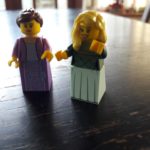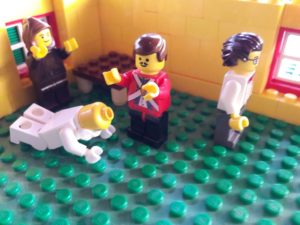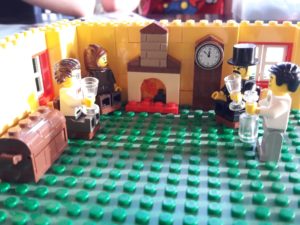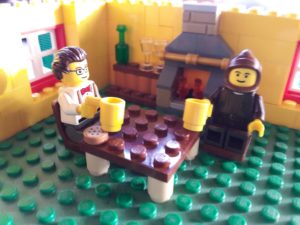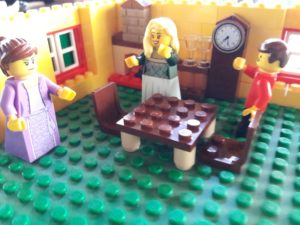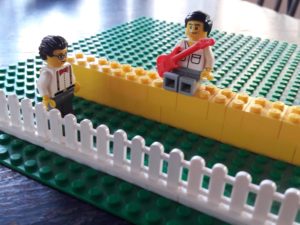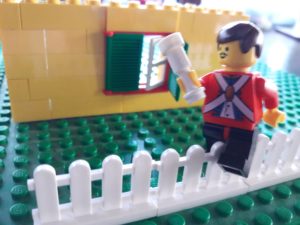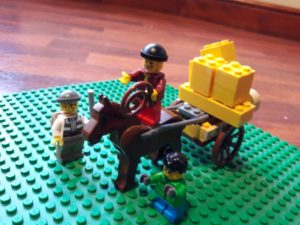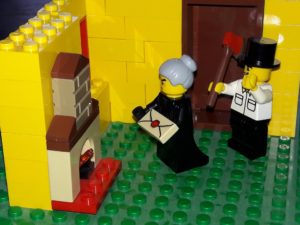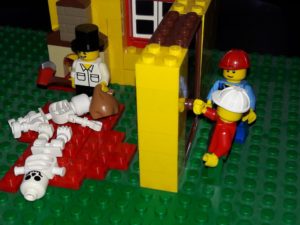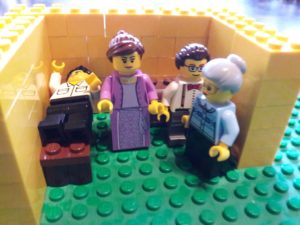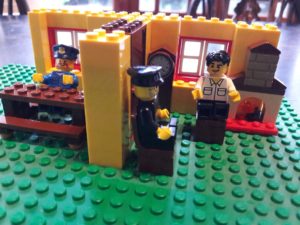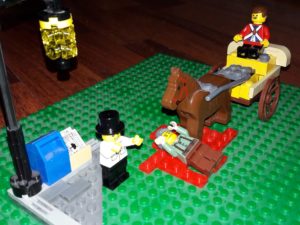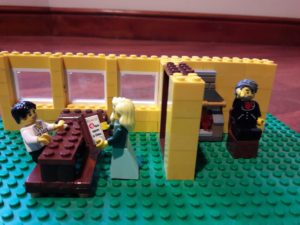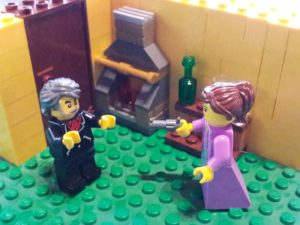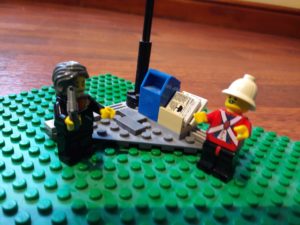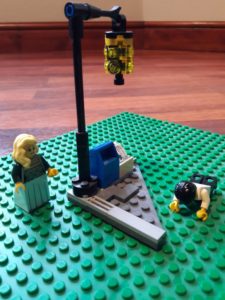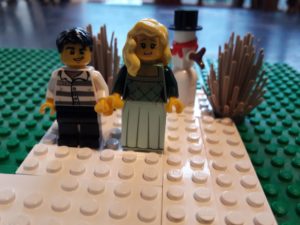2021 marks the bicentenary of Fyodor Dostoevky’s birthday. The great novelist takes a pointed position on numerous political issues which still resonate today. Ulrich M. Schmid, Professor of Russian Culture and Society at the University of St Gallen, Switzerland, imagines interviewing Dostoevsky on contemporary matters.
UMS: Fyodor Mikhailovich, the pandemic is a situation which has led to a tremendous increase in government spending in Russia. What would be your advice here?
FMD: My idea, my formula, is as follows: “In order to establish sound finances in a state that has experienced certain upheavals, don’t think too much about immediate needs, no matter how urgent they may seem; think only about restoring the roots, and you’ll get sound finances.”[1]
UMS: After Brexit, the European Union is in crisis. What is your evaluation of the project of European unification?
FMD: Lacking the instincts of the bee and ant, which flawlessly and accurately construct their hives and anthills, people sought to construct something in the nature of a flawless human anthill.[2]
It would be good if we could also realize that at the moment England is in the most critical situation it has ever been in. This critical situation of hers can be formulated most accurately in a single word: isolation, for never before, perhaps, has England found herself in such terrible isolation as now.[3]
UMS: In your work you mention Karl Marx only once in passing, although you were almost exact contemporaries. What is your assessment of Marxist philosophy and its revolutionary implementation?
FMD: The socialists do not go beyond the gut. They even boast that boots are more important than Shakespeare, that one should be ashamed of talking about the immortality of the soul, and so on.[4]
Some of our worthy generation cast in our lot with socialism and accepted it, without the least hesitation, as the final answer for the unity of all human beings. In such fashion, to achieve our goal we accepted something that was the acme of egoism, the acme of inhumanity, the acme of economic bungling and disorder, the acme of slander on human nature, the acme of destruction of every human freedom; but this did not trouble us in the least. At the same time we became so alienated from our own Russian land that we lost all conception of the degree to which such a doctrine is at odds with the soul of the Russian people. In fact, not only did we have no regard at all for the character of the Russian People, we did not even acknowledge that they had any character. We forgot even to think of it, and with complete and despotic equanimity were convinced (without even raising the question) that our People would at once accept everything we told them.[5]
UMS: Given that you criticize socialism so strongly, do you believe that liberalism offers better prospects?
FMD: What is liberalism, speaking generally, if not an attack on the existing order of things? It is so, isn’t it? The liberal has gone so far as to deny Russia herself – that is to say, he hates and beats his own mother. Every Russian failure and fiasco excites his laughter and almost delights him. He hates national customs, he hates Russian history, he hates everything. If there is any justification for him, it is perhaps that he doesn’t know what he is doing and thinks that his hatred of Russia is the most beneficient kind of liberalism. [6]
UMS: Let’s talk about religion. You are a staunch supporter of the Russian Orthodox faith.
FMD: The Russian knows nothing higher than Christianity and cannot even conceive of anything higher. His whole land, all the commonality, the whole of Russia he has called Christianity, or Krestianstvo. Take a closer look at Orthodoxy: it is by no means only clericalism and ritual; it is a living feeling that our People have transformed into one of those basic living forces without which nations cannot survive.[7]
UMS: What is your opinion of other denominations and of atheists?
FMD: Roman Catholicism is even worse than atheism. Yes, that’s my opinion! Atheism merely preaches a negation, but Catholicism goes further: it preaches a distorted Christ, a Christ calumniated and defamed by it, the opposite of Christ! It preaches Antichrist – I swear it does! Roman Catholicism believes that the Church cannot exist on earth without universal temporal power, and cries: Non possumus! In my opinion, Roman Catholicism isn’t even a religion, but most decidedly a continuation of the Holy Roman Empire, and everything in it is subordinated to that idea, beginning with faith.[8]
UMS: In what way are things better in Russia?
FMD: I think that children should be born on the land and not on the street. One may live on the street later, but a nation – in its vast majority – should be born and arise on the land, on the native soil in which its grain and its trees grow.[9]
UMS: These days we often hear the demand that people face up to the challenges posed by climate change, populism, and the pandemic. What is your advice?
FMD: The truth is not outside you, but within; find yourself in yourself; submit yourself to yourself; master yourself, and you shall see the truth. Conquer yourself, humble yourself, and you shall be freer than ever you imagined; you will embark on a great task and make others free, and you will find happiness, for your life will be made complete, and you will at last understand your People and their sacred truth.[10]
All of Dostoevsky’s answers are original quotations.
———————————————————————-
Ulrich Schmid writes: Fyodor Dostoevsky (1821-1881) was a contentious writer who often fell out with his editors, publishers and fellow poets. As a young man he belonged to a more romantic than revolutionary circle in which the abolition of serfdom and the lifting of censorship were discussed. However, the Tsarist authorities were very nervous in the European revolutionary years of 1848 and 1849. Dostoevsky was arrested, sentenced to death and subjected to a mock execution. He then spent almost ten years in Siberian exile. This decisive experience made him not only a devout Christian, but also an ardent admirer of Tsarism. In the last years of his life he published his Diary of a Writer on a monthly basis, in which he commented on world political events from a very subjective perspective. Dostoevsky’s chauvinist and anti-Semitic remarks are notorious. At the same time, with his great novels, Dostoevsky also presented a radical criticism of Russian society, which, in its imitation of Western lifestyles, he believed remained blind to the expected return of Christ.
Ulrich Schmid’s original article was first published in Neuer Zürcher Zeitung on 7 January 2021. This translation by Sarah Hudspith is an adapted and abridged version of the original text. Thanks to Prof Schmid for his permission.
[1] Diary of a Writer Jan 1881 (A Writer’s Diary, vol. 2, trans. by Kenneth Lantz, London: Quartet, 1995)
[2] Diary of a Writer Nov 1877 (A Writer’s Diary, vol. 2, trans. by Kenneth Lantz, London: Quartet, 1995)
[3] Diary of a Writer May-June 1877 (A Writer’s Diary, vol. 2, trans. by Kenneth Lantz, London: Quartet, 1995)
[4] ‘Socialism and Christianity’, Notebooks 1864, trans. by S. Hudspith
[5] Diary of a Writer Jan 1877 (A Writer’s Diary, vol. 2, trans. by Kenneth Lantz, London: Quartet, 1995)
[6] The Idiot Part 3 Chapter 1 (trans. by David Magarshack, Harmondsworth: Penguin, 1955)
[7] Diary of a Writer Sept 1876 (A Writer’s Diary, vol. 1, trans. by Kenneth Lantz, London: Quartet, 1994)
[8] The Idiot Part 4 Chapter 7 (trans. by David Magarshack, Harmondsworth: Penguin, 1955)
[9] Diary of a Writer July-August 1876 (A Writer’s Diary, vol. 1, trans. by Kenneth Lantz, London: Quartet, 1994)
[10] Pushkin Speech 1880 (A Writer’s Diary, vol. 2, trans. by Kenneth Lantz, London: Quartet, 1995)
